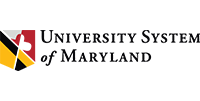
Environmental stewardship and sustainability are becoming guiding principles for all forward-thinking organizations. The University of Maryland Center for Environmental Science (UMCES) has been at the forefront of environmental stewardship for over 90 years and is committed to developing the next generation of scientists, business leaders, policy-makers, natural resource managers, and educators to meet the unprecedented environmental and allied social challenges of the 21st century. This Professional Certificate program will guide anyone with an interest in environmental management to a) obtain literacy in environmental issues, b) use data of different spatial scales to drive decision-making, and c) effectively communicate environmental policy across a broad spectrum of constituencies.
Read more
Environmental stewardship and sustainability are becoming guiding principles for all forward-thinking organizations. The University of Maryland Center for Environmental Science (UMCES) has been at the forefront of environmental stewardship for over 90 years and is committed to developing the next generation of scientists, business leaders, policy-makers, natural resource managers, and educators to meet the unprecedented environmental and allied social challenges of the 21st century. This Professional Certificate program will guide anyone with an interest in environmental management to a) obtain literacy in environmental issues, b) use data of different spatial scales to drive decision-making, and c) effectively communicate environmental policy across a broad spectrum of constituencies.
Environmental stewardship and sustainability are becoming guiding principles for all forward-thinking organizations. The University of Maryland Center for Environmental Science (UMCES) has been at the forefront of environmental stewardship for over 90 years and is committed to developing the next generation of scientists, business leaders, policy-makers, natural resource managers, and educators to meet the unprecedented environmental and allied social challenges of the 21st century. This Professional Certificate program will guide anyone with an interest in environmental management to a) obtain literacy in environmental issues, b) use data of different spatial scales to drive decision-making, and c) effectively communicate environmental policy across a broad spectrum of constituencies.
We will explore the evolution of environmental management among pioneering thought-leaders in conservation ecology and will utilize invaluable supplementary reading to understand how their essential texts remain relevant to this day. Further, we will explore how early conservation and environmental movements were shaped by the reality of politics, policy, and science. Finally, we will explore how today’s environmental managers inform effective policy when using a participatory, transdisciplinary approach to socio-environmental management and justice.
Environmental decision-making requires an approach that best matches your skill sets and organizational needs with crucial environmental issues. We will explore case-studies of the management of large, complex systems, investigate how to scale and transfer the lessons-learned from these case studies, and explore strategies for integrating coupled human and natural systems. From these global examples, including Chesapeake Bay, the world’s best studied estuary, you will learn how to develop solutions to your organization’s unique socio-environmental challenges.
Best-practice environmental management goes hand-in-hand with current methods of communicating changes to complex ecosystems in a manner that is accessible to all stakeholders. Today’s complex environmental challenges ranging from climate change and global warming to land use change require clear and compelling science communication. For example, diffuse sources of pollution like atmospheric emissions and subsequent deposition or groundwater contamination are difficult subjects to envision. You will learn from experienced and talented science communicators how to generate compelling graphics and visualizations combined with an effective narrative structure that will serve as springboards for action within any organization.
Socio-environmental report cards are acknowledged as THE effective tool for communicating status and trends of socio-environmental systems and engaging stakeholders. These tools are being used on a global scale to effect positive change at the local level. Report cards releases have become media events that have sweeping community reach from schools to legislatures. This course will walk you through the process of how these incredibly useful tools are created and disseminated.
What you'll learn
- You will create your personal philosophy for advising policy-makers, business leaders, and other environmental stakeholders on issues related to environmental management and sustainability.
- How to use case-study analyses to develop effective recommendations for best-practice environmental policy.
- How to communicate scientific findings that are accessible and compelling to all target audiences.
- How to develop comprehensive socio-environmental report cards that explain complicated systems in a format geared toward action.
What's inside
Three courses
Storytelling with Data using Socio-environmental Report Cards
(32 hours)
Storytelling with Data using Socio-environmental Report Cards
(32 hours)
Innovative Environmental Management Models: Case Studies and Applications
(32 hours)
Innovative Environmental Management Models: Case Studies and Applications
(32 hours)
The Science Advisory Toolbox for Environmental Management
(32 hours)
The Science Advisory Toolbox for Environmental Management
(32 hours)Save this collection
OpenCourser helps millions of learners each year. People visit us to learn workspace skills, ace their exams, and nurture their curiosity.
Our extensive catalog contains over 50,000 courses and twice as many books. Browse by search, by topic, or even by career interests. We'll match you to the right resources quickly.
Find this site helpful? Tell a friend about us.
We're supported by our community of learners. When you purchase or subscribe to courses and programs or purchase books, we may earn a commission from our partners.
Your purchases help us maintain our catalog and keep our servers humming without ads.
Thank you for supporting OpenCourser.



